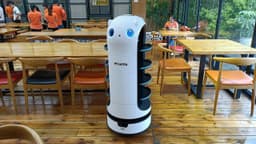The Future of Work: Jobs AI is Set to Replace
Artificial Intelligence (AI) is transforming the workplace. Much like past technological advancements, AI is set to change how we work and the types of jobs available.
What jobs are likely to be affected by AI?
Manufacturing and Production Work
In industries such as automotive and electronics manufacturing, AI and robotics are already in place. Robots excel in repetitive tasks that require precision. They work continuously without breaks, reducing the need for human workers on the production line. Yet, human oversight is still necessary for management and maintenance of these systems.
Data Entry and Analysis
Data entry jobs may soon be a thing of the past. AI can process, organize, and categorize vast amounts of data much faster than humans. In addition to data entry, AI can analyze data to find patterns and insights, significantly altering roles in fields like finance and marketing.
Customer Service
Have you interacted with a virtual assistant on a customer service call? This technology is powered by AI that can handle tasks such as answering FAQs, booking appointments, and routing calls. These systems are becoming increasingly capable of managing customer interactions.
Transportation and Delivery Jobs
The rise of self-driving cars and drones indicates a shift in transportation and delivery jobs. Companies that test autonomous vehicles are paving the way for fewer driving jobs in the future. Additionally, delivery drones promise to change how packages are delivered, further impacting human delivery roles.
Clerical and Administrative Jobs
Administrative roles involving scheduling meetings, managing emails, and travel arrangements may diminish. AI-powered virtual assistants can handle these tasks with great efficiency, potentially leading to fewer administrative positions in companies.
Writing and Journalism
AI is already creating articles in specific domains, particularly in sports and finance. Algorithms can quickly generate content following established templates. While AI writers lack the depth of human authors, they can still produce timely reports based on data.
Healthcare Diagnostic Services
In healthcare, while doctors and nurses remain essential, some diagnostic tasks may increasingly utilize AI. Algorithms that analyze medical images are becoming more accurate, often outperforming humans in diagnosing conditions from scans. As technology advances, AI could take on a greater role in diagnostics.
Legal and Paralegal Work
Legal professionals often sift through numerous documents for relevant information. AI can streamline this process, making the work faster and more efficient. This could reduce the need for paralegals who perform document review, even as the demand for lawyers continues.
Retail and Inventory Management
In retail, AI can assist with inventory management tasks such as stock level monitoring, predicting buying patterns, and reordering products. Self-checkout kiosks and automated systems are already reducing the need for human cashiers and store staff.
AI is changing the job market, especially in roles that involve routine tasks and data handling. While some jobs may be replaced, AI could also enhance the roles of creative and strategic professionals. The future of work will likely involve AI augmenting human capabilities, allowing for a focus on more complex and engaging tasks.












